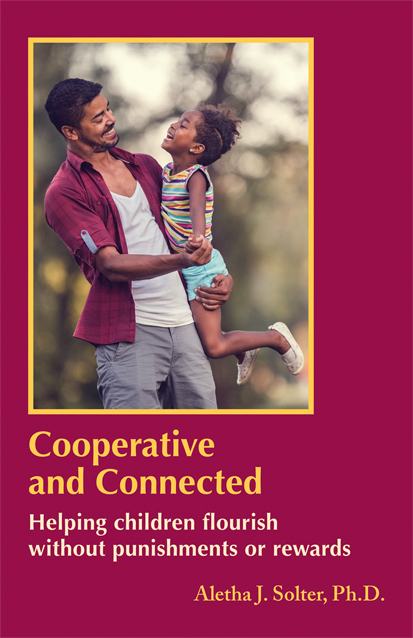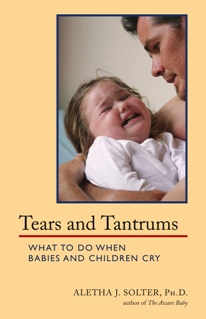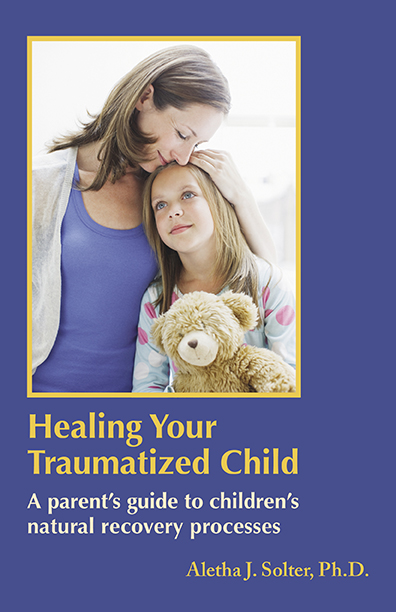Single mother cannot control four-year-old son
by Aletha Solter, Ph.D.
Question:
I am having a very hard time with my son. He's four-and-a-half years old, and sometimes I cannot control him. He is often in a very bad, pouting mood and throws extremely bad tantrums. During these tantrums he will throw things, bang on the walls, scream forever, kick furniture and slam doors. If I yell at him or spank him it only makes him more defiant. I don't know if this is a result of "just being spoiled" or if there is a psychological or medical reason behind this behavior. He has always been a difficult child. Traditional methods of discipline, such as telling him how he makes me feel when he throws these tantrums, and using the time-out method, simply do not work.
As a single, full-time working mother, I find this all very hard to deal with. I feel like when I do spend time with my son, it's always spent punishing or yelling at him for his inappropriate behavior. I work Monday through Friday, and after spending all day Saturday and Sunday with my son and his bad attitude and temper tantrums, I am sorry to say I look forward to work on Monday. I love my son tremendously and really want to be the best mom I can be. Please offer me some advice.
Answer:
Your son is not spoiled. He is simply showing signs of stress. I recommend, first of all, that you look for sources of stress in his daycare situation during the week. Is he in a warm, nurturing environment, or is there harsh discipline or too high a child/adult ratio. You say you are a single mother. I am wondering if your separation or divorce from his father could have contributed to his stress and perhaps anger at you. This does not mean that you need to feel guilty, but it is important to understand that your son is suffering from an overload of stress.
If there is no current stress in his life, it's possible that he is suffering from a past traumatic experience that left him feeling angry, frightened, and vulnerable. I am only guessing at the possible causes. You who know him best can probably figure out what stresses or past traumas he might be reacting to.
I strongly urge you to refrain from any form of punishment, including the use of time-out (which you said doesn't work anyway). Yelling, spanking, and withdrawal of attention will only further contribute to his stress and make the situation worse. Your son is trying to be heard and understood. He needs your love and reassurance that his anger will not cause you to reject him. Crying and raging are important healing mechanisms that help children release stress and recover from traumatic experiences. These behaviors should never be stopped unless the child is being violent or destructive (see below).
You can help your son to feel loved and understood if you stay near him when he has temper tantrums. Pay attention to him, acknowledge his feelings, and reassure him of your love and support. You can say, for example, "I see that you are very angry right now. I will stay with you until you feel better. I won't leave you alone with those big feelings." Children need to feel loved no matter how they are feeling. This is not going to be easy, but he needs your love and compassion more than anything else at those times.
When your son feels that you are really listening to him and that you understand how he is feeling, his aggressive behavior (such as throwing things and banging doors) may decrease, although he may continue to cry. If he tries to hurt you or do something truly destructive (like break a window), you will need to intervene with some physical restraint, but not punishment. For example, you can hold his wrists firmly or gather him in a loving embrace while explaining that you're not willing to let him do those things. The goal is NOT to stop him from crying, but to help him feel safe enough so that he can cry without feeling the need to be destructive. He will probably continue to cry angrily for a while, and this is important for him to do. After he has had a good cry with your loving attention, he will become more relaxed and cooperative.
About Aletha Solter
Aletha Solter, PhD, is a developmental psychologist, international speaker, consultant, and founder of the Aware Parenting Institute. Her books have been translated into many languages, and she is recognized internationally as an expert on attachment, trauma, and non-punitive discipline.
Aware Parenting is a philosophy of child-rearing that has the potential to change the world. Based on cutting-edge research and insights in child development, Aware Parenting questions most traditional assumptions about raising children, and proposes a new approach that can profoundly shift a parent's relationship with his or her child. Parents who follow this approach raise children who are bright, compassionate, competent, nonviolent, and drug free.
For more information about this topic, see Aletha Solter's books, Cooperative and Connected, Tears and Tantrums, and Healing Your Traumatized Child.


